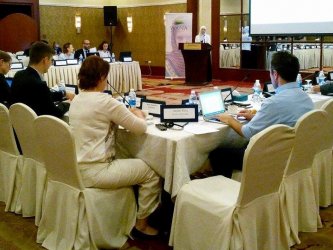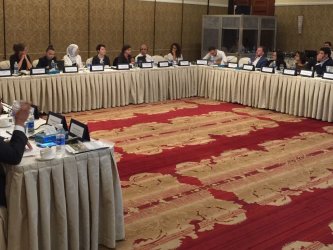-
Human Security and Radicalisation Drivers in Jordan
Human Security and Radicalisation Drivers in Jordan
On 30 July 2017, the West Asia-North Africa (WANA) Institute gathered 25 experts to discuss the relationship between human security programming and projects that aim to counter violent extremism in Jordan.
The WANA Institute shared its research findings which identified obstacles to efficient human security programming in Jordan, and how these barriers can influence radicalisation drivers in the country. Afterwards, four international experts and experts from local UN agencies, INGOs and CBOs were asked to provide feedback.
Social Cohesion, Youth and Gender
Key research findings highlight three main areas of concern: social cohesion, youth, and gender. Firstly, donor influence on projects – prioritising refugees over low-income Jordanians – seems to negatively influence social cohesion, fuelling feelings of marginalisation and economic frustrations that can lead to radicalisation.
Secondly, even though youth are one of the most at-risk groups for radicalisation, they appear to be victim to programming gaps and are largely ignored as a demographic. This specifically applies to youth of the age group 10-16 years old. Therefore, youth seem to be growing more resentful towards authorities, and are more likely to engage in deviant behaviour.
Lastly, internalised misogyny is a cause for concern, as in many cases it is difficult to engage female beneficiaries. Cultural norms are a barrier for effective women empowerment/development projects.
Other variables affecting human security were categorised by actor: beneficiaries, donors, civil society and government. The research identified the shortcomings of each category.
Need for careful programming
The focus of human security programming appears to be on social and political marginalisation. The study also showed that effective human security programmes can intervene in the radicalisation process, while inefficient programmes exacerbate radicalisation drivers, stressing the need for careful programming.
There is a need to align efforts undertaken by government, civil society, donors, and international NGOs. One of the participants noted, however, that the most important question is who would oversee the implementation of such an aligned approach in Jordan. This will determine its success and feasibility.
The research is part of a project funded by the Dutch Embassy that attempts to understand the relationship between human security and effecting measures for countering extremism. The publication of the full paper is expected later this year.


